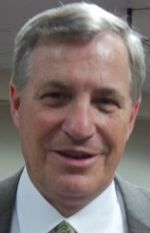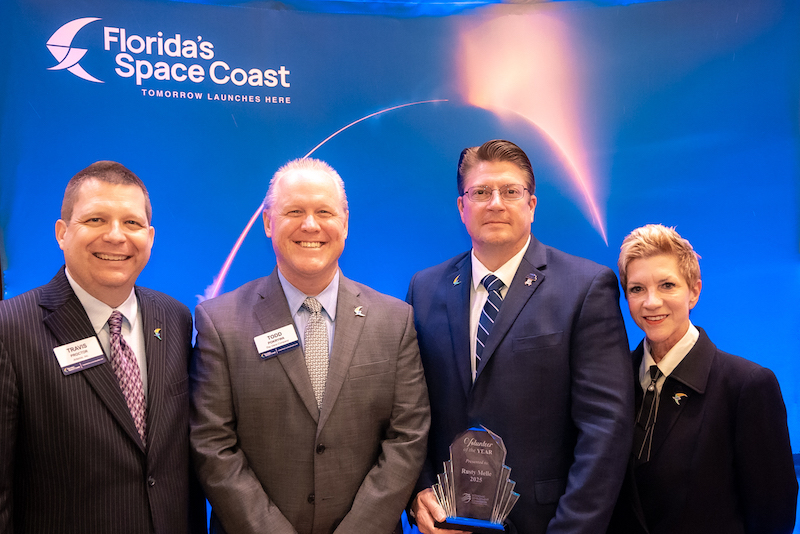Survey Rates Effectiveness Of School Principals
By Ed Pierce // May 21, 2012
Reviewed By Teachers

BREVARD COUNTY • VIERA, FLORIDA – In a system that consistently scrutinizes and evaluates the effectiveness of teachers, Florida school districts are required to hold principals accountable for leadership and student performance as well.
On the Space Coast, principals receive appointments by the Brevard County School Board at the recommendation of the Brevard Schools superintendent.
A tool that has been used for more than two decades in Brevard County as a starting point in the process of rating a principal’s ability to manage is the annual survey of teachers compiled by the Brevard Federation of Teachers and then submitted to the superintendent for study and review.

This year’s survey was sent to teachers before spring break at the end of March and results continue to trickle in to Brevard Federation of Teachers from all over the county.
Once all the surveys have been submitted, results will be tabulated and shared with the school district.
ASSISTANCE
Richard Smith, Brevard Federation of Teachers president, said the survey is intended to assist in the educational process.
“The survey was meant to be an opportunity to engage the district in a collaborative discussion to improve the most important individual at a school. The principal affects the children, the teachers, the parents and the community,” Smith said. “Thus far, the district has acknowledged the survey and to the teachers’ frustration, not addressed the more severe criticisms of the least effective principals. This is hard to accept in a climate where teachers are held accountable for so much.”
Smith said the annual survey not only reveals what makes some of the top principals highly effective, but also why some principals receive consistently poor marks from teachers they supervise.
“We believe there is much more that goes into being a successful principal than getting an A school grade. There’s a perception among many teachers that as long as the school scores come in strong, there is not a whole lot of concern for how a principal manages a school,” said Dan Bennett of the Brevard Federation of Teachers.
It begins with a culture of respect. Some schools in this county just don’t model that behavior from the top.
“We have principals out there whose default tone is yelling. We have teachers who are so intimidated that they never engage in the discussions that lead to improving education,” he said. “The superintendent wants to increase collaboration. That means a willingness to disagree professionally. It begins with a culture of respect. Some schools in this county just don’t model that behavior from the top.”

“It can be summarized as ‘Is my administrator doing that which will help students learn?’” Smith said. “This sometimes can be stated by students and teachers as ‘They won’t care how much the administrator knows, until they know how much the administrator cares.’”
COMMUNICATION
Bennett said he agrees with that statement.
“The top principals are the ones that teachers always feel they can talk to. They are the ones that teachers know will be supportive. Teachers won’t have busy work dropped on them and they know the principal will respect their time,” he said. “Top rated principals answer questions and handle concerns. When a problem arises, teachers know they can open up and admit mistakes without getting chewed out.”
Bennett said union representatives have seen many situations good and bad regarding principals through the years.
“When teachers beg us to help them transfer, it is usually from one of about five schools,” he said. “All schools have great challenges. But only a few have teachers begging us to help get them out.”
Although the survey is not an official evaluation, Bennett said it is an opportunity to open a dialogue between the teachers, school administrators and the district.
“Teachers report far more than intimidation on our surveys. They report issues with communication,” Bennett said. “They report cultures of favoritism. Teachers will supervise playgrounds of children who give each other the silent treatment. Then the teachers come inside and find out a principal won’t reply to an email for two weeks. In doing these surveys we hope the district would scrutinize our results and know where to begin professional development of their administrators. As the next big push is to foster collaboration, they are going to have to begin by ending the bullying that goes on in some of these schools.”

Smith said new ratings areas and questions were included on this year’s survey.
“I’m a new president and each facet of the Brevard Federation of Teachers has been revisited for effectiveness,” he said. “It was disappointing to see the disconnect between very bad results and seemingly mild to no accountability by the district. It was also sad to see the truly great principals under-rewarded.”
CANDID
The 2012 survey is more direct and candid than ever before.
“We’ve tried being gentle and the district just doesn’t seem to care. Now we’ll be asking questions about your principal’s effect on overall morale,” Bennett said. “We’ll be targeting the principals that gossip about other employees and seem preoccupied about setting up allegiances. We’ll be asking if the principal is a role model for ethics.”
He said that as the questions become tougher, the results show a greater disconnect between those at the bottom and the rest.
“Most principals, as always, will come out just fine,” Bennett said. “But the ones that are true morale busters should really stand out.”
In addition, Bennett said the survey includes special recognition areas for administrators whose entire faculties believe they are objective and fair.
“Heading into our new evaluation system for teachers, these are going to be important qualities for principals,” he said. “We put a question about this on our survey and those administrators will be recognized who do exceedingly well.”
Smith said he encourages the public to ask the district to take survey results to heart as a method of implementing real change in the way schools are managed.
“The most direct way is to write them or call them and ask why a source of information would not be used to improve the district’s administrators,” he said. ”I understand that the district isn’t in control of the process, but frankly that makes it scientifically more reliable. I believe most people would understand this.”
Shelley Sanders retired last August after a 29-year career as a elementary special education teacher, with 15 years of service in Brevard Public Schools.
Sanders said she wished school administrators in Viera would take a longer look at the surveys and read the comments carefully.
“This could be a wonderful administrative tool if used fairly and objectively,” Sanders said. “However I don’t think the higher-ups even look at them. There are some principals out there that are just not supportive and simply do not listen to the teachers. The surveys are intended to help point out areas in which some principals could improve or reveal which principals are doing an excellent job, but it has been my experience that Viera doesn’t take them seriously and I wish they would.”
Brevard Schools Superintendent Dr. Brian T. Binggeli did not respond to requests to provide comments for this story.












